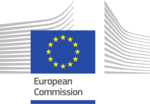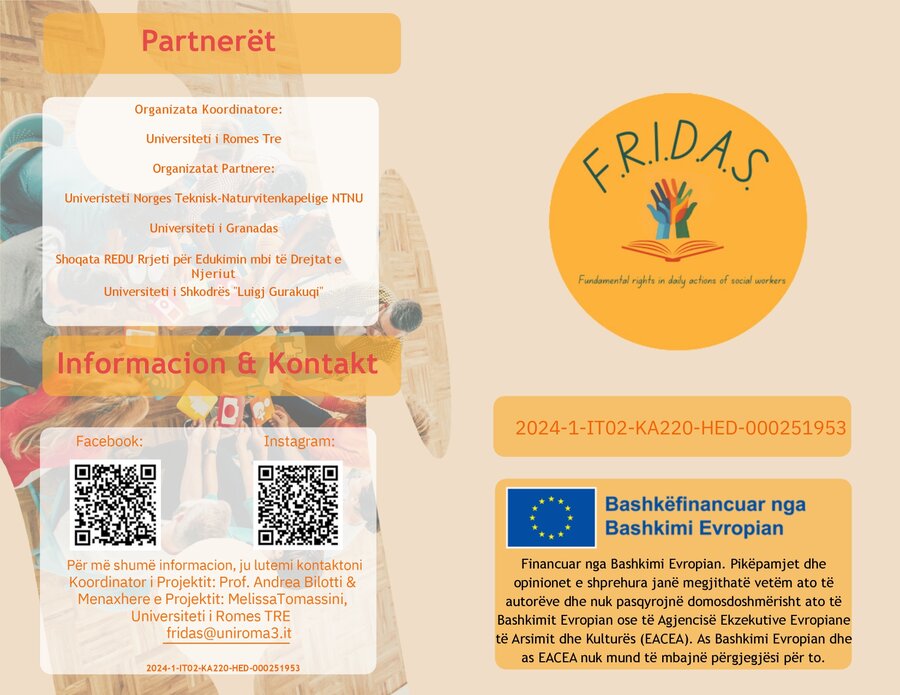

Summary of the Erasmus+ KA220-HED - Cooperation partnerships in higher education
Fundamental rights in daily actions of social workers (F.R.I.D.A.S.)
The F.R.I.D.A.S. project emphases the crucial link between social work and human rights, building on international and European frameworks that recognise social work as a profession deeply rooted in human rights principles. Despite this acknowledgment, there is a noticeable gap in social work education, where essential concepts like human rights and democracy are often overlooked. In response, F.R.I.D.A.S. aims to bridge this gap by developing and implementing a human rights-based curriculum specifically designed to strengthen the knowledge, skills, and attitudes of future social workers.
The project focuses on enhancing students’ understanding of the Charter of Fundamental Rights of the European Union and other key international standards that protect vulnerable groups. As such, it is intended to equip students with practical tools to promote inclusion, combat discrimination, and prevent human rights violations effectively in their future work. This includes improving soft skills such as empathy, lateral thinking, and critical thinking, which are essential for social work. Furthermore, F.R.I.D.A.S. seeks to foster a rights-based culture within social work education and practice by encouraging future professionals to engage in social advocacy and build meaningful relationships with key stakeholders in vulnerable communities.
To thid end, the project will produce concrete outcomes such as a collection of social work case studies that highlight human rights violations, a competence framework on human rights, and teaching modules that incorporate a human rights approach into social work training. F.R.I.D.A.S. will also establish a virtual community where students and practitioners can collaborate and support each other in defending human rights.
Through these initiatives, the project aligns with broader educational priorities of inclusion, diversity, democratic participation, and civic engagement, utilising non-formal and experiential learning methods to stimulate comprehensive learning and lasting impact.
Consortium:
Universita degli Studi Roma Tre – ITALY (project Leader)
Norges Teknisk-Naturvitenskapelige Universitet (NTNU) – NORWAY
Universeti Shkodres “Luigj Gurakuqi” – ALBANIA
Universidad de Granada – SPAIN
Associazione Rete Educare ai Diritti Umani (REDU)- ITALY
EU DISCLAIMER

This project has been funded with support from the European Commission. This publication [communication] reflects the views only of the author, and the Commission cannot be held responsible for any use which may be made of the information contained therein.

